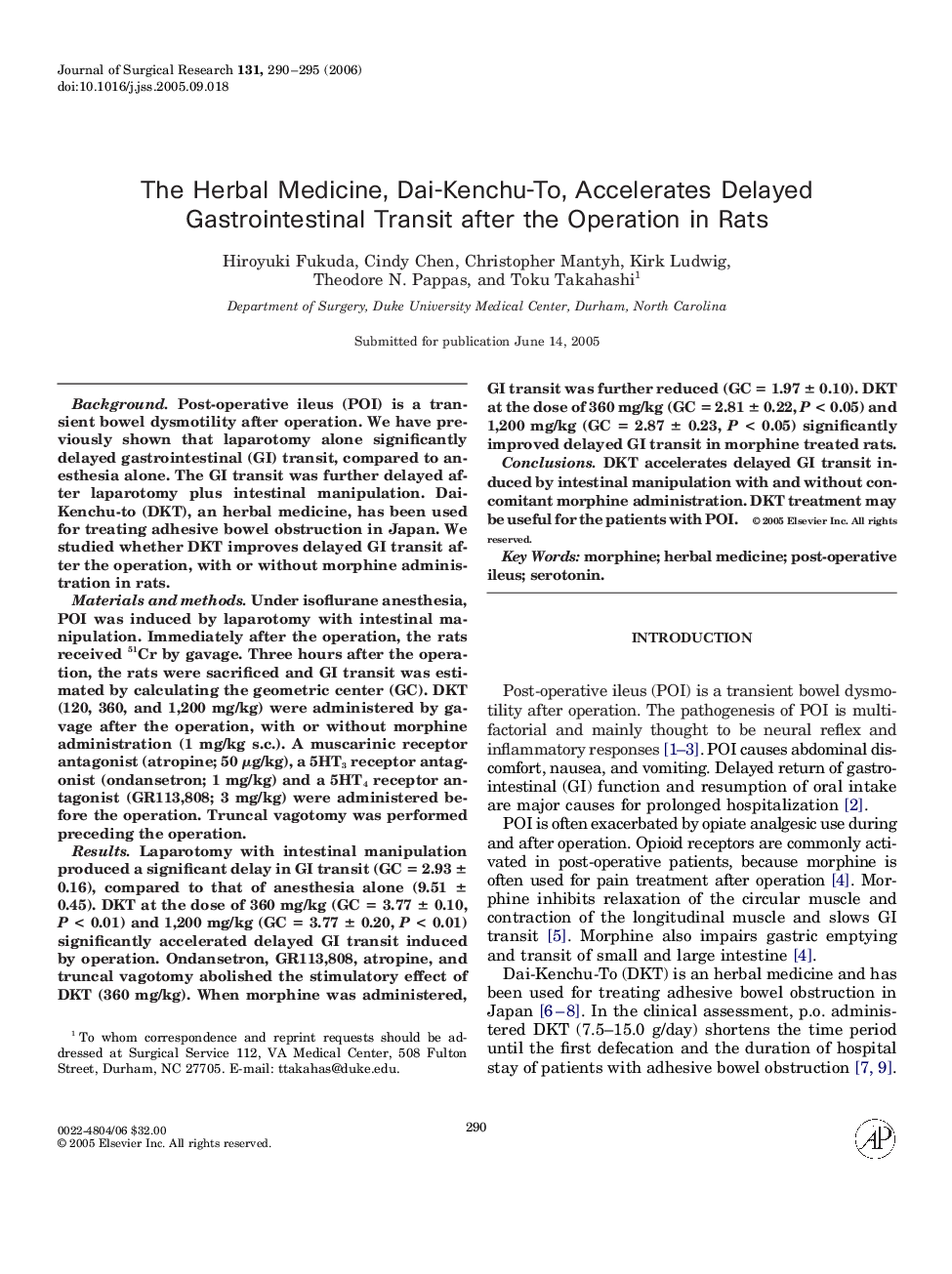| کد مقاله | کد نشریه | سال انتشار | مقاله انگلیسی | نسخه تمام متن |
|---|---|---|---|---|
| 4304795 | 1288514 | 2006 | 6 صفحه PDF | دانلود رایگان |

BackgroundPost-operative ileus (POI) is a transient bowel dysmotility after operation. We have previously shown that laparotomy alone significantly delayed gastrointestinal (GI) transit, compared to anesthesia alone. The GI transit was further delayed after laparotomy plus intestinal manipulation. Dai-Kenchu-to (DKT), an herbal medicine, has been used for treating adhesive bowel obstruction in Japan. We studied whether DKT improves delayed GI transit after the operation, with or without morphine administration in rats.Materials and methodsUnder isoflurane anesthesia, POI was induced by laparotomy with intestinal manipulation. Immediately after the operation, the rats received 51Cr by gavage. Three hours after the operation, the rats were sacrificed and GI transit was estimated by calculating the geometric center (GC). DKT (120, 360, and 1,200 mg/kg) were administered by gavage after the operation, with or without morphine administration (1 mg/kg s.c.). A muscarinic receptor antagonist (atropine; 50 μg/kg), a 5HT3 receptor antagonist (ondansetron; 1 mg/kg) and a 5HT4 receptor antagonist (GR113,808; 3 mg/kg) were administered before the operation. Truncal vagotomy was performed preceding the operation.ResultsLaparotomy with intestinal manipulation produced a significant delay in GI transit (GC = 2.93 ± 0.16), compared to that of anesthesia alone (9.51 ± 0.45). DKT at the dose of 360 mg/kg (GC = 3.77 ± 0.10, P < 0.01) and 1,200 mg/kg (GC = 3.77 ± 0.20, P < 0.01) significantly accelerated delayed GI transit induced by operation. Ondansetron, GR113,808, atropine, and truncal vagotomy abolished the stimulatory effect of DKT (360 mg/kg). When morphine was administered, GI transit was further reduced (GC = 1.97 ± 0.10). DKT at the dose of 360 mg/kg (GC = 2.81 ± 0.22, P < 0.05) and 1,200 mg/kg (GC = 2.87 ± 0.23, P < 0.05) significantly improved delayed GI transit in morphine treated rats.ConclusionsDKT accelerates delayed GI transit induced by intestinal manipulation with and without concomitant morphine administration. DKT treatment may be useful for the patients with POI.
Journal: Journal of Surgical Research - Volume 131, Issue 2, April 2006, Pages 290–295